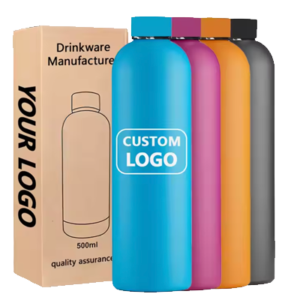What is injection molding process?
Injection molding is a common plastic processing technology, which is the process of heating and melting plastic granules, then injecting the molten plastic into a mold through an injection molding machine, and then cooling and solidifying the mold to form the plastic. The injection molding process usually includes the following steps: charging, melting, injecting, cooling and mold opening.
Table of Contents
ToggleI. What are the advantages of the injection molding process?
1. High production efficiency: Injection molding machines can automate production, resulting in high production efficiency.
2. Low production cost: Injection molding machines can produce products in large quantities, resulting in lower production costs.
3. High production precision: Injection molding machines can precisely control the amount of plastic injection and pressure, which can produce high-precision plastic products.
4. High plasticity: The injection molding process is suitable for a variety of different shapes and sizes of plastic products.
The injection molding process is widely used in the production of various plastic products, such as plastic boxes, plastic cups, plastic parts and so on. In the design and production process of injection molded products, the following factors need to be considered:
1. Material selection: Different plastic materials have different physical and chemical properties, and need to select the appropriate material according to the use of the product environment and performance requirements.
2. Mold design: The design of the mold needs to take into account the shape, size and production process of the product and other factors, in order to ensure the production quality and production efficiency of the product.
3. Process parameters: The parameters of injection molding process include injection pressure, injection speed, injection temperature, etc., which need to be adjusted according to the requirements of the products to ensure the quality and productivity of the products.
II. How is the injection molding process applied in water bottle manufacturing?
In the water bottle industry, the injection molding process is widely used in the production of various products, such as insulated stainless steel water bottles, teapots, coffee cups, mugs, and so on. The application of injection molding products in the bottle industry mainly has the following aspects:
Appearance design: Injection molding process can produce a variety of different shapes and sizes of products, which can meet the appearance needs of different users. The appearance design of injection molded products can be achieved through the mold design and adjustment of process parameters, can produce a variety of different colors, patterns and texture of the products.
Thermal insulation performance: Injection molding process can produce a good thermal insulation performance of insulated bottles and teapots and other products. In the design and production process of injection molded products, the thermal insulation effect can be improved by selecting suitable materials and adjusting process parameters.
Durable performance: Injection molded products have the advantages of high strength, high hardness, high wear resistance, and high corrosion resistance, which can ensure the durability of products. Injection molded products can be produced with a long service life of the products, reduce the user’s maintenance and replacement costs.
Production efficiency: Injection molding machines can automate production, resulting in high production efficiency and meeting the demand for large-scale production. Injection molded products can produce products in large quantities, resulting in lower production costs.
In summary, injection molding process is a common plastic processing technology, with high production efficiency, low production costs, high production precision and plasticity and other advantages. Injection molded products have the advantages of good appearance design, heat preservation performance, durability and production efficiency, and are widely used in the bottle industry. In the design and production process of injection molded products, factors such as material selection, mold design and process parameters need to be considered to ensure the quality and production efficiency of the products.


